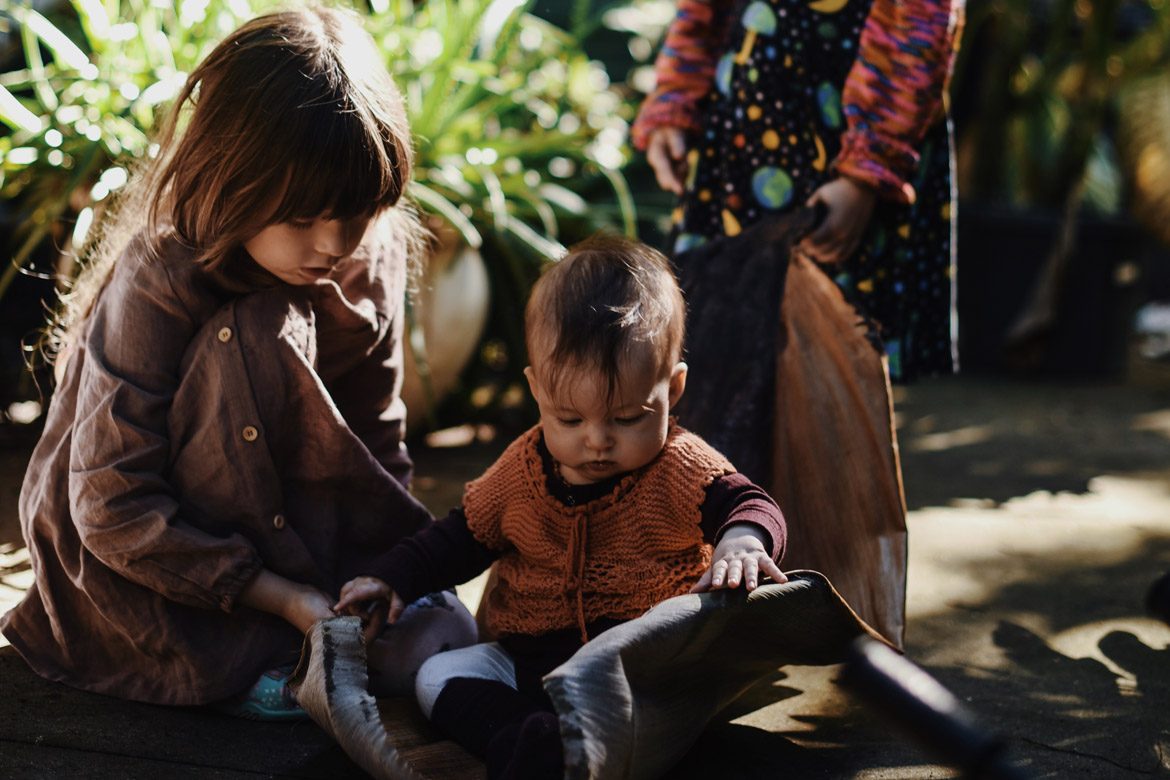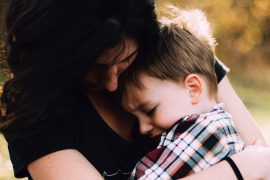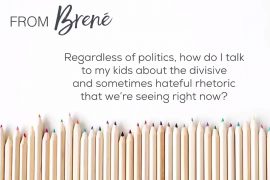By Genevieve Simperingham
As parents, we wish for our children to grow up ready to tackle and enjoy life to the full. We want them to grow in confidence, to stand tall in their unique self, with their dignity and self-esteem intact, balanced with empathy and care for others.
The child who grows up being able to access how they really feel is equipped with the richest knowledge possible. As well as teaching them the social skills and all the dos and don’ts of life, it’s so important we also support them to feel truly at peace and comfortable in themselves. They need guidance to listen to their comfortable or uncomfortable feelings, to follow their heart and learn to decipher what truly feels right. As well as striving to model living life according to what feels right, listening to our feelings and integrity; children benefit from the questions which help them explore their own feelings and values.
Like: “How does it feel in your body when you think about each of those two options?” And for children of all ages, we direct them to notice their feelings every time we reflect the emotions that we see or imagine we’re seeing in them. We don’t always get it right when we say “You seem sad?” or “Hey buddy, you look really frustrated?”, but we probably help them become a bit more aware of what they’re feeling.
And helping a child feel comfortable expressing their feelings starts from birth. We validate our baby’s feeling when we respond to their frustration with a sad sympathetic look, or reflect a wide grin and excited sounds to share their excitement at the family cat entering the room. And so this sharing and mirroring of feelings continues through their years, helping our child feel seen, known and understood. Peaceful parenting puts a lot of focus on staying tuned in to our child’s inner world of feelings, fears, hopes, dreams, insecurities and expectations. And to do so, we pretty much need to stay in touch with our own inner world.
Peaceful parenting puts a lot of focus on staying tuned in to our child’s inner world of feelings, fears, hopes, dreams, insecurities and expectations. And to do so, we pretty much need to stay in touch with our own inner world.
We want our children to feel good about the person they see in the mirror, despite the challenges they face. It’s important to give our children positive reflections of all the beautiful qualities we see in them. And it’s arguable that many of the hardest challenges and threats to their positive self-image involve disharmony with others, especially relating to direct negative feedback from us parents. How can we maintain and model connection, dignity and respect through as many of the day to day challenges with our children as possible? Not all of them, because that may not even be possible, but as many as we can.
Our children are trying to do the hard yards of owning their mistakes and changing their ways based on the reflections of others. We know how important it is to give our children honest reflections and not neglectfully lead them to believe that they’re perfectly entitled to be rude, aggressive, demanding and insensitive. However, just as important as mirroring what’s not OK to do because it’s dangerous, aggressive, hurtful, disruptive or off track for whatever reason and why – is our reassurance that their actions do not diminish our view of them or our overall love for them.
This reassurance greatly helps a child preserve their dignity, their innocence and their positive self-image. We make it so much easier for them to learn when we somehow convey that we still care about them, and we care about what they were feeling when they did that which we struggle to accept.
If we want our children to accept more responsibility, then we want to help them both identify and work through the often painful feelings which drive their “irresponsible” behaviour.
When we deeply commit to preserving our child’s dignity and positive self-image as they learn from their challenges, it’s important to be mindful of changing our message from, “You. Have. To. Get. How. Bad this is!!” to a message of, “This isn’t OK, I’m not happy about it, AND I can see this is hard for you and I’m here to help.” The first message tends to have a shaming effect, which makes it very difficult for a child (or anyone really) to be anything other than defensive. The second is teaching with support, making it easier to own up to what needs to change or be repaired. And if you’re unsure, just imagine receiving each statement from an authority figure whose approval you depend on.
Shaming doesn’t teach our young people to take responsibility, it just teaches them to feel ashamed. And humans of all ages tend to want to hide that which they feel ashamed about. We can moralize about being honest, but more effectively, it’s our job to make it truly safe for our child to hear and trust our guidance when they break the rules, stuff up, act out, do that which they know they shouldn’t do, but were driven by big feelings, curiosity or the magnetic force of peer pressure. And let’s all remember to be honest about the fact that a child getting in trouble with their parent very often has a lot more to do with the parent’s mood and stress levels than whether the child’s action is actually so bad!
Children can also be filled with shame when it looks like their parent can’t bear to be in the same room as them (which is often more about the parent not being able to bear the feelings the situation has triggered). And when this happens, our children need and deserve for us to do all we can to again own our own pain and stress and restore their dignity. And if I make this sound easy, I know well that it can be incredibly hard, especially when a parent is exhausted and stretched past their limits. It’s often indicative that some pressure needs to give, and more support is needed.
Imagine children growing up right from the get-go with the feeling that they’re still OK even when they make mistakes. Our children need to know the answer to the question: “When my words or actions result in somebody else being really upset, can the relationship survive, am I still lovable, am I still entitled to feel like an OK person?” If your child knows the answer to be a big “yes”, then they’re well on the road to being someone who will likely to able to always return to feeling comfortable and at peace within themselves.











